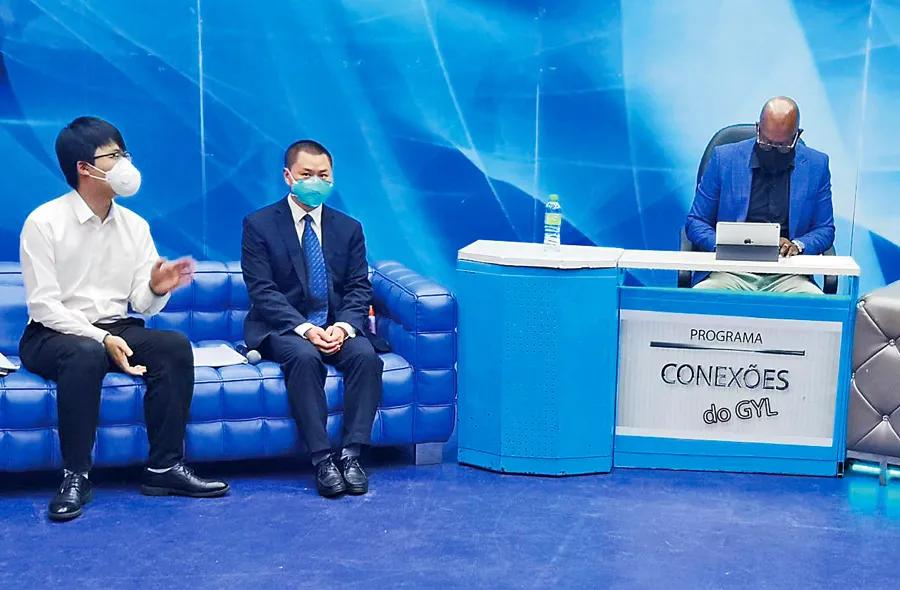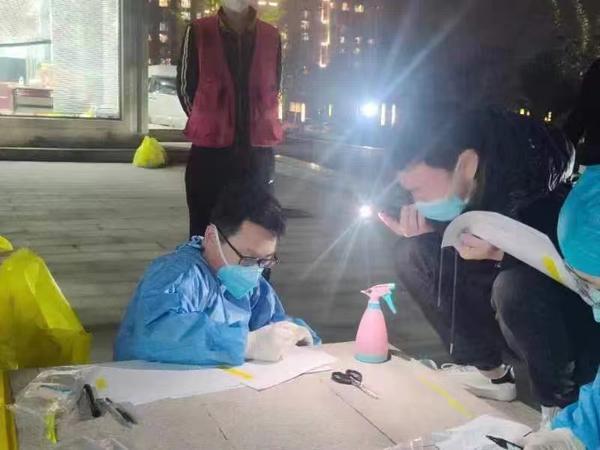Ladies and Gentlemen,
Standing here today, my heart is filled with a mix of emotions—a sense of awe at the resilience of humanity, a deep sense of gratitude for the frontline workers who tirelessly battle this pandemic, and a profound sense of responsibility to use this platform to inspire us all towards a brighter future. The COVID-19 pandemic has reshaped our world in ways that we can hardly fathom, and it is imperative that we come together as one to address its consequences and prevent similar crises in the future.
The Unprecedented Challenge
First and foremost, let us acknowledge the sheer magnitude of this pandemic. COVID-19 has not only infected millions worldwide but has also claimed countless lives, disrupting economies, education systems, and social structures. It has exposed the vulnerabilities in our healthcare systems and highlighted the importance of preparedness for future health crises. The virus has transcended borders, illustrating that no nation is an island and that we are all interconnected in this global village.
The Heroes on the Frontline
As we reflect on the impact of this pandemic, we must never forget the heroes who have bravely stepped forward. From doctors and nurses in personal protective equipment (PPE), risking their own lives to save others, to grocery store clerks and delivery drivers ensuring our basic needs are met, to scientists racing against time to develop vaccines and treatments. These are the unsung heroes who have kept our societies functioning amidst chaos. Their dedication and sacrifice remind us of the power of humanity in times of crisis.
The Importance of Science and Collaboration
The scientific community has played a pivotal role in our response to COVID-19. The rapid development of vaccines, although unprecedented in speed, was a testament to the power of collaboration and scientific progress. It is crucial that we continue to invest in research, not only for the next pandemic but for the long-term health and wellbeing of our planet. We must also ensure that all countries have access to these scientific advancements, regardless of their economic status, as a global effort is necessary to combat such threats.
The Need for Global Solidarity
The COVID-19 pandemic has underscored the importance of global solidarity more than ever before. The virus does not respect borders; it spreads without discrimination. Therefore, it is imperative that we work together to share information, resources, and expertise. This includes supporting each other financially, through trade agreements that prioritize essential goods and services, and by ensuring equitable distribution of vaccines worldwide. We must remember that every life lost is a tragedy that affects us all.
The Role of Governments and Policymakers
Governments and policymakers hold a crucial role in guiding our societies through this crisis. They must balance public health measures with economic stability, ensuring that businesses can operate safely while also protecting the most vulnerable populations. This requires a nuanced approach to lockdowns, testing strategies, and vaccine distribution plans. Additionally, transparency and accountability are key to building trust in government actions and decisions. The public must be informed about the risks, benefits, and limitations of any measures taken, empowering them to make informed choices for themselves and their communities.
The Impact on Mental Health
The psychological toll of the pandemic cannot be overlooked. Loneliness, anxiety, depression, and a sense of hopelessness have affected individuals, families, and communities alike. Mental health services have been stretched to their limits, and we must ensure that adequate resources are allocated to address this crisis. This includes providing access to online counseling services, hotlines, and community support groups. It is essential that we prioritize mental health as a critical component of our overall response strategy.
The Role of Individuals and Communities
While governments and institutions play a vital role, individuals and communities are at the heart of any successful response to a crisis like COVID-19. We must all practice responsible behavior—wearing masks, maintaining social distancing, washing our hands regularly, and getting vaccinated when eligible. Additionally, fostering a culture of compassion and empathy within our communities can go a long way in alleviating the emotional burden of this pandemic. Neighbors helping neighbors, volunteering at food banks or hospitals, and simply checking in on those who may be isolated—these acts of kindness can bring hope during dark times.
Looking Beyond the Pandemic: Building Resilience
As we navigate through this crisis, we must also look beyond its immediate consequences towards building a more resilient future. This includes investing in infrastructure that can withstand future pandemics, enhancing digital connectivity to bridge the digital divide, and promoting sustainable practices that can mitigate the impact of climate change—a potential future threat multiplier. We must also reimagine our healthcare systems, ensuring they are equipped to handle not just infectious diseases but also non-communicable diseases and other health challenges.
Conclusion: A Call to Action
Ladies and Gentlemen, we stand at a crossroads. The COVID-19 pandemic has exposed our vulnerabilities but also demonstrated our capacity for compassion and innovation. As we emerge from this crisis, let us use it as an opportunity for transformation—to build back better than before. We must continue to prioritize science and collaboration, foster global solidarity
转载请注明来自爬爬百科,本文标题:《团结抗疫,对COVID-19疫情的行动呼吁》












 京ICP备11000001号
京ICP备11000001号
发表评论